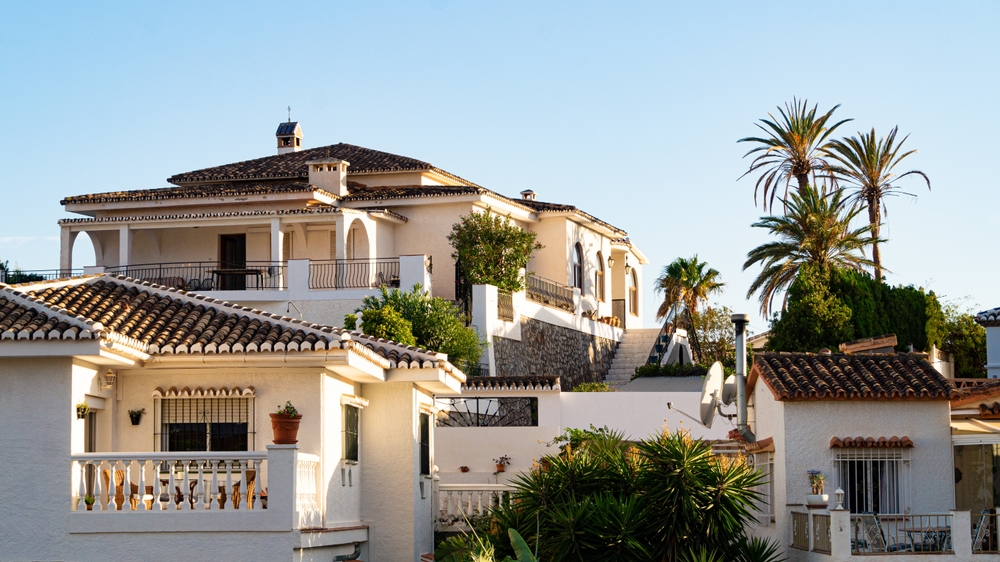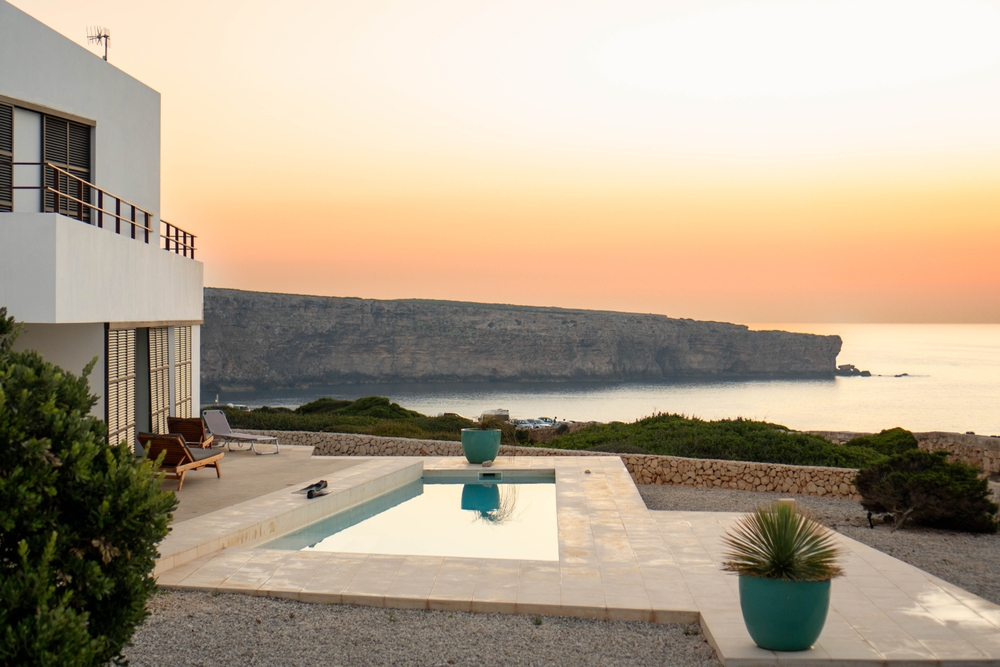Spain is one of the most popular tourist destinations in the world for UK citizens and beyond, registering more than 100 million international visitors last year alone.
When planning your travels, there’s much you need to check off your to-do list – from making sure you’ve packed all the essentials and that you’ve secured travel insurance. It’s also important that you familiarise yourself with the ins and outs of the 90-day rule in Spain.
In this blog, our financial specialists explain everything you need to know about the 90-day rule, the new EU Entry/Exit System (EES) and what British tourists and non-EU citizens need to do.
How long can you stay in Spain without a visa?
When planning an extended trip to visit Spain – be it for a family holiday, short-term studies, or a business trip – many people are unsure as to how long they can stay in the country without having to apply for a visa.
This is where the 90/180-day rule comes in.
Set out by the Schengen member states (a group of 27 European countries), the 90/180-day rule was introduced to limit the amount of time that international visitors, including British citizens, can spend in a Schengen country – including Spain.
These guidelines state that foreigners without a residence permit can travel in Spain for up to 90 days (up to three months) every 180-day period visa-free, but if you’re staying for longer, you’ll need to apply for a visa.

What happens if I don’t get a visa or if I overstay one?
Travelling in Spain for more than 90 days without a visa, or travelling to a different Schengen country in the same 180-day window, is a criminal offence – which can come with some serious legal consequences for breaking immigration rules.
If you’re travelling without a visa and valid travel documents, some Schengen countries may simply instruct you to leave right away, but others could impose:
- Fines – Overstaying your welcome could earn you a fine between 500€-10,000€ depending on how long you’ve overstayed. A fine could also be issued in conjunction with an entry ban.
- Deportation – This usually only happens if you’re working or claiming benefits in Spain without a valid visa. You’ll be given a limited number of days to leave Spain before you’re officially deported.
- Entry bans – If you’re caught travelling in Spain – or any other Schengen country – past the 90-day period, you could be banned from re-entering for up to 3 years.
- Prison sentences – Staying in Spain for over 90 days in any 180-day period without a valid visa can result in jail time. Depending on how long you overstay your welcome, you could be sentenced to 6-12 months in prison.
How long can you stay in Spain if you own a property?
Even if you’re a non-citizen who owns a property in Spain, you’re still only entitled to stay in the country for up to 90 days out of every 180 days.
If you want to stay in Spain for longer than 90 days, you’ll need to look into applying for one of the following visas:
- Work visa – If you’ve found employment in Spain and wish to stay for longer than 90 days, third-country nationals can apply for a work visa. This is valid for up to 3 years, and if you wish to extend it at the end of this period you can do so. After 5 years, you may be eligible to apply for permanent residence.
- Non-lucrative visa – You can apply for this visa in Spain without employment, and to qualify, you need to be able to prove that you have an annual income of at least €27,792. These visas usually last for up to 2 years, after which you can renew them if you plan on staying any longer.
- Golden visa – These visas are issued to non-EU nationals who intend to make a significant investment in the Spanish economy – be it in stocks and shares, property, or government schemes. They allow applicants and their families to live, study, and work in Spain, and offer a pathway to citizenship. Initially, golden visas are valid for up to 1 year, and you can extend the validity for up to 5 years. After 5 years, you may apply for a permanent visa.
Can anyone buy a property in Spain?
As long as you have a Spanish NIE (Número de Identificatión del Extranjero), you should have no problem purchasing a property in Spain or getting a Spanish mortgage.
This number is unique to you and is essential to carrying out any transaction in Spain.
Since it must appear on all documents that you sign or are issued to you, you must have this in place before buying a property.
Obtaining an NIE number is fairly simple, but it can take some time.
It’s also advantageous to have a Spanish bank account to make transactions quicker and simpler, and could even save you some commission fees.
Can I stay for 90 days in one Schengen area and then 90 days in another?
You cannot stay for 90 days in one Schengen country and then move to another Schengen country for another 90 days without violating the 90/180 rule.
The 90/180 rule applies across the entire Schengen Area, not by individual country. This means that within any 180-day period, you can only spend 90 days in total in Schengen countries, regardless of which country you choose to visit.
For example, if you stay for 90 days in Spain, you would not be able to stay another 90 days in another Schengen country unless you have a valid visa or residence permit. You would need to leave the Schengen Area for at least 90 days before returning.
If you plan to stay longer or travel more frequently, it’s essential to check the specific visa and residency requirements for each country.
Potential changes to Spain’s 90-day rule
In recent months, the Spanish government has been pushing the European Union (EU) to ditch the 90-day rule.
It has been revealed how the current ruling is working against their interests, and that it’s having a significant impact on the Spanish economy.
They wouldn’t be the first Schengen country to do this, and it seems Spain is attempting to follow in France’s footsteps. In December 2023, France proposed a bold amendment to its immigration laws aimed at easing restrictions for British second-home owners. The amendment, which sought to exempt these individuals from the Schengen 90-day rule and allow extended stays without formal visa applications, was initially approved by the French Senate.
However, the Constitutional Council later rejected the proposal, citing constitutional conflicts. As a result, British nationals with property in France must continue to adhere to the 90/180-day Schengen limit or apply for long-stay visas individually.
Spain has reportedly also shown interest in adopting similar measures to address challenges faced by British part-time residents. While discussions have sparked optimism, no concrete legislation has been introduced to relax the Schengen rules or grant automatic long-stay visas to UK nationals as of yet.

New travel rules 2025 – EES
To prevent those travelling on a short-term stay from overstaying their maximum 90 days, and also to improve security, the EU has introduced a new entry system for non-EU residents, including UK citizens, visiting Schengen countries. It’s called the EU Entry/Exit System, or EES for short. The new digital border-control system uses biometrics and replaces manual passport stamping at Spanish border control – it began rolling out on the 12th of October, and by April 2026, every border crossing point will be using EES.
Note – You will also need to apply for ETIAS online to get approval before travelling to the EU. See our ‘What is ETIAS, and do I need it?‘ blog for more information.
How does EES work?
- Arrival at a Schengen border
Whether at an airport, port or land crossing. - Registering on the system
The first time you travel after the new system has been introduced, you’ll need to register at a special kiosk. You’ll scan your passport, then the machine will take your fingerprints and an image of your face. There’s also a series of short questions to answer about your trip. Registration has been estimated to take between 2-3 minutes per person. - Permission to enter
After the relevant checks have been completed, UK passport holders entering Spain will go to the border guard for final confirmation, who will ensure all your details are fine.
The digital system will store your biometrics and information, meaning you do not need to register every time you travel to Spain or the rest of the EU.
The Schengen-calculator
To help you plan and control your travels to Spain, we highly recommend using the EU’s official Schengen-calculator, also known as the Schengen visa calculator. This efficient tool allows you to quickly input your travel dates and calculate how many days you’ve spent and have left in the Schengen zone.
By keeping track of your stay, you can help to save yourself from legal trouble with the Spanish immigration authorities, such as fines or future entry bans.
Non-lucrative Spanish visas
If you want to reside in Spain whilst still being able to travel throughout the Schengen area, then you’ll want to look into obtaining a non-lucrative Spanish visa.
This permit is suitable for those who:
- Want to spend retirement in Spanish territory
- Have the financial capability to relocate without having to work
- Plan on spending their first year in Spain without working and applying for a work permit after 365 days
- Wish to live on passive income (like pension, rents, dividends, etc.)
Applying for a non-lucrative Spanish visa is relatively straightforward. Along with your national visa and non-working residence application forms, you’ll need to submit:
- A recent passport-size photograph of yourself
- A valid passport or travel document
- A criminal record document (or equivalent)
- Medical insurance documentation
- A medical certificate
- Proof of income
The legal period for the government to make their decision is three months, but this period may be extended if an interview or additional documents are required.
Contact our expert Spanish mortgage brokers
Need more information about Spain’s 90-day rule and visa regulations? Looking into purchasing a property in Spain and need some professional advice?
We’re here for you at Fluent Finance Abroad!
Based in Marbella, on Spain’s coveted Costa Del Sol, we’ve got an impressive track record of helping our clients, especially British nationals, secure Spanish mortgages and would be more than happy to guide you through the process with a hassle-free experience.
Give us a call today at 0034 952 85 36 47, or email us at info@fluentfinanceabroad.com and we’ll be in touch with more information shortly.
The information was last updated 8th December 2025.



